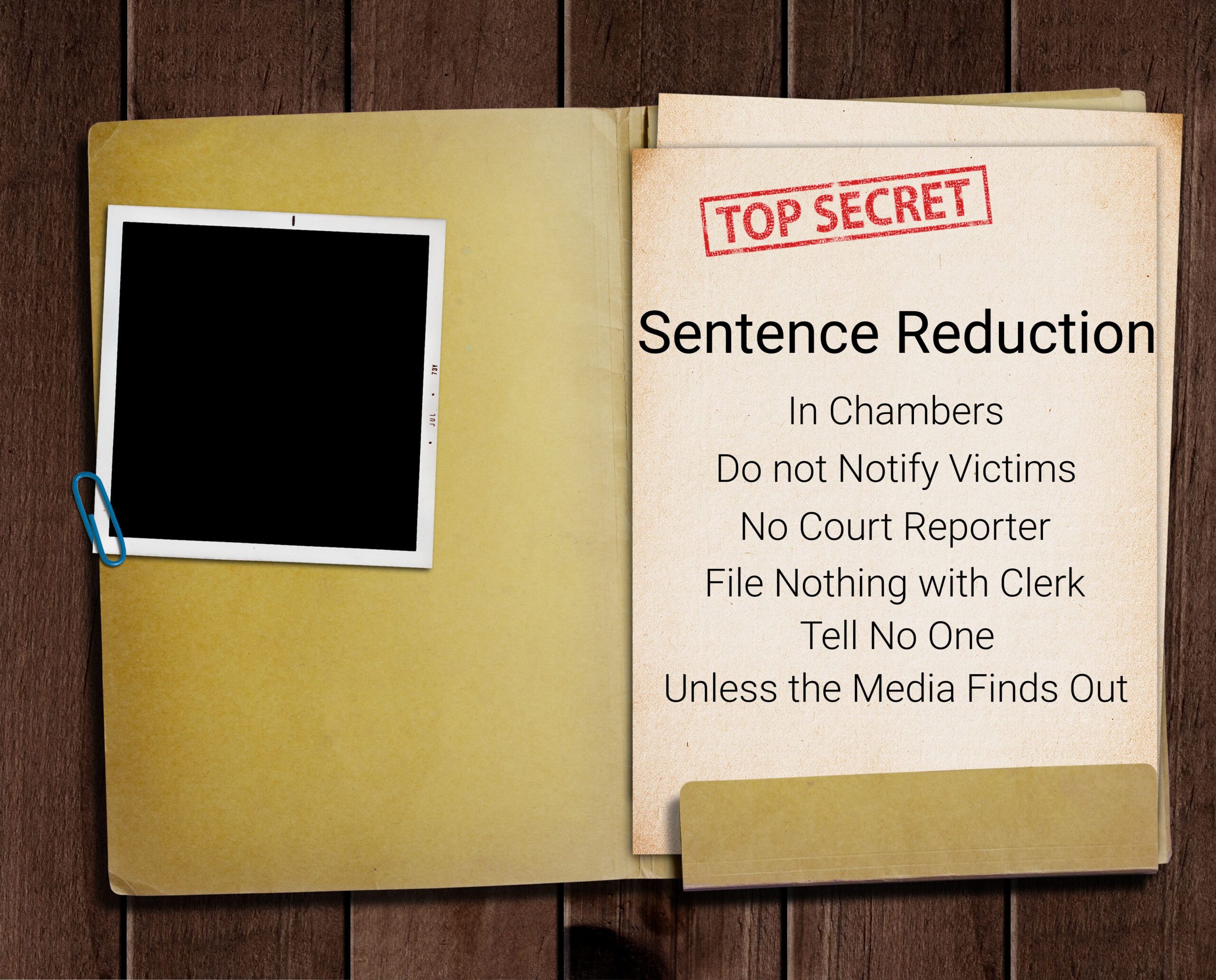Last week, the SC Supreme Court released a written opinion explaining their decision to reverse the Jeroid Price sentence reduction order and send him back to prison (if you missed it, Price was released from prison after a judge signed an order reducing his murder sentence by over 15 years, then rearrested and sent back to prison when the SC Supreme Court vacated the circuit court order).
After reading the opinion, we are left with more questions than were answered. For example, why did the Fifth Circuit Solicitor ask a judge who was about to retire to sign an order releasing Price without a hearing and without notifying the victims? Why wasn’t the order filed with the clerk of court?
Was Jeroid Price entitled to a sentence reduction?
If so, why hasn’t the solicitor made the motion again, following the proper procedure? Did the Fifth Circuit believe that Price was entitled to a reduction in sentence, but now Price is no longer entitled to the sentence reduction?
Victims Have the Right to Be Informed of and to be Present at any Post-Conviction Action
The SC Supreme Court found that the Fifth Circuit Solicitor and the circuit court violated the Victim’s Bill of Rights and the Victim’s Rights Act, although this was not the Court’s basis for vacating the sentence reduction order.
Article I, Section 24 of the SC Constitution says that victims have the right to be:
- “Informed of any proceeding when any post-conviction action is being considered,” and
- “Present at any post-conviction hearing involving a post-conviction release decision.”
The victims were not notified that there was a post-conviction action being considered when the Fifth Circuit Solicitor asked the circuit court to sign an order reducing Price’s sentence, and the victims were not given the opportunity to be present at Price’s hearing where the court decided to release him (because there was no hearing).
Pursuant to the Victim’s Rights Act (SC Code §16-3-1505), the prosecutor “must attempt to notify each victim of each hearing, trial, or other proceeding… sufficiently in advance to allow the victim to exercise [their] rights…” That was not done in Price’s case, because no hearing was scheduled, and the attorneys met with the judge in chambers to ask him to sign the order.
The Act also requires the judge, “before proceeding with a trial, plea, sentencing, or other dispositive hearing in a case involving a victim, [to] ask the prosecuting agency to verify that a reasonable attempt was made to notify the victim sufficiently in advance to attend.” That also was not done in Price’s case.
But Victims Have Little Recourse to Enforce Their Rights…
Both the constitutional provisions and the SC Victims Rights Act are clear that the court’s failure to comply is not grounds to invalidate a court order, however – possibly the reason why solicitors and courts ignore victims’ rights so often:
However, both the Victims’ Bill of Rights and the Victims’ Rights Act contain provisions indicating failure to comply should not be cause to invalidate or set aside the orders of a court. See S.C. Const. art. I, § 24(C)(1) (“A victim’s exercise of any right granted by this section is not grounds for dismissing any criminal proceeding or setting aside any conviction or sentence.”); § 16-3-1565(B) (“A sentence must not be invalidated because of failure to comply with the provisions of this article.”). In the past, our appellate courts have not used violations of the Victims’ Bill of Rights or Victims’ Rights Act to overturn any action by a trial court. See Littlefield, 343 S.C. at 223, 540 S.E.2d at 87 (refusing “to re-open a case” based on violations of the Victims’ Rights Act).
Violation of victims’ rights is not grounds to set aside a court order, and it does not create a civil cause of action, but a victim can file a writ of mandamus to force a government official to comply with the Victims’ Rights Act – that doesn’t help when the prosecutor and judge hold a secret meeting without telling the victims, though…
Why was Jeroid Price Sent Back to Prison?
The SC Supreme Court found that 1) the circuit court’s failure to follow the requirements of SC Code § 17-25-65 (including filing a written motion with the clerk’s office and holding a hearing) and 2) the court’s failure to make the proceedings public (including not having a public hearing and filing the order under seal) justified vacating the order and reinstating Price’s sentence.
Two dissenting justices, however, disagreed and found that the SC Supreme Court should not be in the business of cleaning up circuit solicitors’ messes for them:
…[T]he State sought and obtained the very sentence reduction it now asks this Court to vacate. The State prepared the sentence reduction order and presented it to the circuit judge for his signature. In doing so, the State created the unfortunate state of affairs the State now asks this Court to untangle. I would be the first to say that Price deserved every day of his 35-year sentence, but the Court should not be short-sighted and overlook the impact of today’s decision; the process matters. We should not permit the State to resort to the judicial branch for relief from the State’s own poor choices, as embarrassing as they may be for the State. Therefore, I dissent…
During oral argument, the Attorney General, appearing for the State, conceded the obvious when he said, “The State is the State is the State” and “the State failed.” As I will repeat perhaps too many times, this Court should not relieve the State from an order the State procured.
SC Victim’s Rights Attorneys in Myrtle Beach
All too often, South Carolina courts fail crime victims. If you feel that you need help navigating the criminal justice system and ensuring that your voice is heard, call a victim’s rights attorney at Coastal Law now at (843) 488-5000 or message us online for a free consultation about your case.



